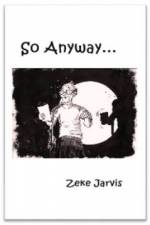There are many things I could blame for being so remiss as to let the newest bar-based poetry open mic series pass me by for two months: C-U’s spring arts scene is obscenely busy, with every artist being legally required to perform-paint-sing-dance-act a final project before Mother’s Day; there may also have been some auto-deleting of the duplicate copies of Accord press emails which resulted in all of them being deleted wholesale. Thankfully, SP Culture had the brilliant idea of featuring the Reading Room on the SP Radio Podcast, which is apparently what it took to get my attention.
Another thing that led me to finding the Reading Room was the fact that I looked up and said, “Hey, where did Stories & Beer go?” Turns out, it went to the Accord and changed its name, but I still found it. Organizer Caleb Curtiss helped Roya Khatiblou, Jim O’Brien and John Dudek coordinate with the new management, Seth Fein, and in March the Reading Room was born. That podcast is only 15 minutes long if you want to hear more about its inception and the motivation behind it, plus some audience-favorited poetry; it’s well worth a listen.
The third monthly Reading Room event will be held this weekend. The format is simple: two featured readers perform with open mic time between. The most unique aspect of the reading, however, is that the audience then votes for their favorite performer. Small ballots are provided, handstamps are given out to prevent repeat-voting, and the winner is notified by email once the tallies are in. I’ve also been assured that organizers will help remind voters of the readers’ names, even “if they can only remember a line from a poem or the reader’s haircut.”
So what? It’s not a head-to-head rap battle, popularity isn’t decided by applause volume, and so far, there is no trophy or victory wall. Still, previous winner John Dudek tells me “Being voted audience favorite of the open mic was a distinct honor. There aren’t a lot of places where writers are applauded for their toils, so the recognition is really energizing.” In addition to bragging rights, the audience favorite also receives some airtime on SP Radio, a chance to read a selection and to be preserved forever on the internet. From an audience standpoint, I like the idea of being given a voice, in a solely positive way; sometimes clapping just isn’t enough.

 This month features two singular authors with very different voices. Janice Harrington is a local personality: she teaches here at the University of Illinois, and has won awards for both her poetry and her picture books, and has been a professional storyteller. Zeke Jarvis also teaches, but nearby at Eureka College, and is considered a humorist by many sources, with many satirical short stories to his credit. Since he was both a math major and wrote stand-up comedy, I think it’s safe to paint him with that brush. Both have contributed to literary journals and published collections.
This month features two singular authors with very different voices. Janice Harrington is a local personality: she teaches here at the University of Illinois, and has won awards for both her poetry and her picture books, and has been a professional storyteller. Zeke Jarvis also teaches, but nearby at Eureka College, and is considered a humorist by many sources, with many satirical short stories to his credit. Since he was both a math major and wrote stand-up comedy, I think it’s safe to paint him with that brush. Both have contributed to literary journals and published collections.
 A night featuring a stand-up and a storyteller is sure to entertain. I’ve seen Harrington perform previously, and know that her rich voice, haunting images and call-and-response cadences will have no issue catching and keeping the attention of even a bar crowd. Reading Jarvis’ work online, I can imagine it translating easily to a high-spirited room and evoking copious laughter, especially the poems that were written as introductions to open-mic-read-poems. I was slightly worried about the juxtaposition until I discovered the open mic performances happen in between, which I think will be a good palate cleanser, regardless of who reads first.
A night featuring a stand-up and a storyteller is sure to entertain. I’ve seen Harrington perform previously, and know that her rich voice, haunting images and call-and-response cadences will have no issue catching and keeping the attention of even a bar crowd. Reading Jarvis’ work online, I can imagine it translating easily to a high-spirited room and evoking copious laughter, especially the poems that were written as introductions to open-mic-read-poems. I was slightly worried about the juxtaposition until I discovered the open mic performances happen in between, which I think will be a good palate cleanser, regardless of who reads first.
It was, however, something I asked Mr. Jarvis specifically about when I had a chance to interview them both –
SP: You and Ms. Harrington have distinctly different voices. How are you preparing yourself (and the audience) for the juxtaposition? While I appreciate that the night will offer a variety of emotional experiences, how do you think the comparison will play out?
 Jarvis: My co-headliner is a tremendous talent, so my hope is that people will come in for her but find my work entertaining as well. I think that there’s some work that works very well on the page and some work that works well for entertaining crowds. There’s definitely overlap between the two, but I probably tend to err on the side of entertaining for readings. And even though Janice Harrington has introspective and complex poetry, she also is successful as children’s author, so I’m sure that she’ll strike an excellent balance at the reading. I think, too, that too much of the same thing (even if it’s good) can be tiring over the long haul, so I’m confident that a variety of styles will go over well.
Jarvis: My co-headliner is a tremendous talent, so my hope is that people will come in for her but find my work entertaining as well. I think that there’s some work that works very well on the page and some work that works well for entertaining crowds. There’s definitely overlap between the two, but I probably tend to err on the side of entertaining for readings. And even though Janice Harrington has introspective and complex poetry, she also is successful as children’s author, so I’m sure that she’ll strike an excellent balance at the reading. I think, too, that too much of the same thing (even if it’s good) can be tiring over the long haul, so I’m confident that a variety of styles will go over well.
SP: Since Mr. Jarvis brought up your children’s books, recently, I have been more aware of your award-winning children’s lit rather than your award-winning poetry. Are you returning your focus to your adult works, or is this just a chance to present to a different community? Can we look forward to new material?
 Harrington: My poetry and my writing for children have travelled parallel paths. I have maintained both audiences. I regularly publish poetry in literary journals and I’m excited to announce the fall release of Primitive: The Art and Life of Horace H. Pippin, my newest poetry collection, and the publication of Catching a Storyfish, a verse-novel for grades 1-4. What will listeners hear at the reading? I’m a poet of place and lyricism. I will take listeners to places—real, imaginary, racial, and historical—that provoke poetry.
Harrington: My poetry and my writing for children have travelled parallel paths. I have maintained both audiences. I regularly publish poetry in literary journals and I’m excited to announce the fall release of Primitive: The Art and Life of Horace H. Pippin, my newest poetry collection, and the publication of Catching a Storyfish, a verse-novel for grades 1-4. What will listeners hear at the reading? I’m a poet of place and lyricism. I will take listeners to places—real, imaginary, racial, and historical—that provoke poetry.
SP: The Reading Room being held in a bar downtown promises a different type of audience than your assumed-standard college-town coffee shop open mic experience. What do you most anticipate about this particular venue & attendance? What prompted you to accept the invitation?
Harrington: John Dudek invited me to read, and I adore John’s writing. So, it’s a pleasure to share my work at his reading series and before fans of the written word. I’m looking forward to selecting for the types of poems that will work in the dark closeness of a bar and that will touch readers who are giving at least half of their attention to a good drink. But I know that readers want to be engaged, and they want poems that will leave both visual and emotional energy in their imaginations. I’m looking forward to tackling that challenge.
Jarvis: I’ve read in bars before, and it’s often the case that a little lubrication makes most things seem better, readings and humor particularly. So, I might come across better than I would were the crowd sober. Jim O’Brien was kind enough to invite me down after seeing me read at Swearingen Memorial Library. I was incredibly grateful for the opportunity, because it’s tough to find a good audience for literary writing these days. A lot of literary writing and the events that surround them can be incestuous or tough to get into for larger audiences, so events like these are both exciting and important to be part of for writers.
———
The Reading Room will take place this Saturday, May 28th, at 5 p.m. inside the Accord at 51 E. Main Street, downtown Champaign. Admission is free, so take some time out of your evening, be a part of the literary community, and practice exercising your right to vote.
About Rebecca Knaur…
As Arts Editor, rk hogs all the best assignments for herself but entirely owns up when she misses something important like this, while still secretly blaming the higher-ups. If you must tweet, tweet @rknaur.
(editor’s note: an earlier form of this article incorrectly identified Roya Khatiblou as just “Roya Khat”, for which I apologize and have corrected.)









 About Rebecca Knaur…
About Rebecca Knaur…